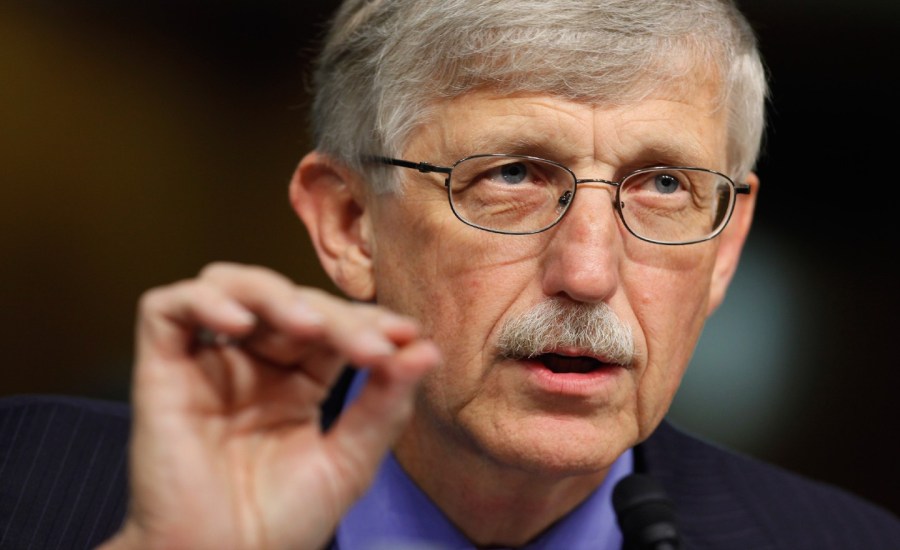
The former director of the National Institutes of Health (NIH), Francis S. Collins, revealed his prostate cancer diagnosis and detailed his decision to go public with it in an essay published by the Washington Post on Friday.
Collins said he knew his prostate-specific antigen levels were going up, an increase in those can mean the presence of prostate cancer, a common occurrence with men older than 65.
But an MRI scan from a month ago revealed he had an expanding tumor and spiking PSA levels.
“New biopsies taken from the mass showed transformation into a much more aggressive cancer,” Collins wrote in the essay. “When I heard the diagnosis was now a 9 on a cancer-grading scale that goes only to 10, I knew that everything had changed.”
Collins was the director of NIH from 2009 to 2021. He heads the White House initiative to “eliminate hepatitis C” in the U.S.
Collins said a PET scan determined, “There was no detectable evidence of cancer outside of the primary tumor.” He said he would have to undergo a radical prostatectomy procedure to remove his entire prostate gland later this month.
“While there are no guarantees, my doctors believe I have a high likelihood of being cured by the surgery,” he wrote.
“I want all men to have the same opportunity that I did. Prostate cancer is still the No. 2 killer of men,” Collins continued. “I want the goals of the Cancer Moonshot to be met — to end cancer as we know it. Early detection really matters, and when combined with active surveillance can identify the risky cancers like mine, and leave the rest alone.”
Cancer Moonshot was launched during former President Obama’s second term, part of the 21st Century Cures Act that was passed in 2016. It is an effort to curb the death rate from cancer and help out people living with cancer. President Biden has continued the efforts.
The physician-geneticist pointed to a high survival rate, 97 percent, per American Cancer Society, but that it drops to 34 percent if the cancer spreads to “distant areas of the body.”
In the essay, Collins wrote about inequities with treatments and screenings and struggles impacting Black men who have a higher probability of suffering from it.
“Why am I going public about this cancer that many men are uncomfortable talking about,” Collins wrote. “Because I want to lift the veil and share lifesaving information, and I want all men to benefit from the medical research to which I’ve devoted my career and that is now guiding my care.”
Copyright 2024 Nexstar Media Inc. All rights reserved. This material may not be published, broadcast, rewritten, or redistributed.














